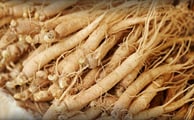Exploring Natural Treatments: The Power of Medicinal Herbs and Alternatives
Herbal treatments offer a holistic approach to health, relying on plant-based remedies trusted for centuries. This article explores their benefits, history, science, and modern uses—continue reading.


The Benefits of Natural Herbal Treatments
Natural herbal treatments encompass a broad spectrum of plant-based therapies designed to support physical, mental, and emotional well-being. They stem from traditional practices in cultures like Ayurveda, Traditional Chinese Medicine (TCM), and Indigenous healing systems. These remedies prioritize harmony within the body, offering an alternative to conventional pharmaceuticals.
Historical Importance of Herbal Remedies
Herbs have been used medicinally for over 5,000 years. Ancient Egyptians recorded herbal prescriptions on papyrus, while Hippocrates, the “Father of Medicine,” lauded the healing power of plants. Today, science continues to validate many traditional claims about these natural remedies.
Why Choose Natural Herbal Treatments?
Advantages Over Synthetic Drugs
Holistic Approach: Herbal remedies often treat the root cause rather than just the symptoms.
Accessibility: Many herbs are affordable and can be grown at home.
Personalization: Traditional systems like Ayurveda tailor herbal treatments to individual needs.
Safety and Fewer Side Effects
Herbal medicines generally have fewer side effects compared to synthetic drugs. When used appropriately, herbs like chamomile for relaxation or ginger for nausea can be both safe and effective.
Sustainable and Eco-Friendly
Plants used in herbal treatments are renewable resources. Sustainable farming practices ensure these remedies align with environmental conservation.
History and Evolution
Ancient Cultures and Herbal Remedies
Civilizations like India, China, and Greece pioneered herbal medicine. Ayurveda emphasized balancing bodily doshas, while TCM highlighted the yin-yang harmony.
Traditional Medicine Systems
Native American tribes used echinacea for immune support, and African tribes leveraged rooibos for its antioxidant properties. Each culture's unique herbal practices laid the groundwork for modern applications.
Common Herbs and Their Benefits
Aloe Vera: Skin and Digestive Health
Known for its soothing properties, aloe vera helps heal wounds, relieve sunburn, and support gut health when consumed as juice.
Turmeric: Anti-Inflammatory Properties
Curcumin, the active compound in turmeric, has proven anti-inflammatory and antioxidant effects, beneficial for arthritis and chronic conditions.
Ginseng: Energy Booster and Immune Support
Both Asian and American ginseng varieties enhance stamina, reduce fatigue, and support immune function.
Modern Applications of Herbal Treatments
Integrative Medicine
Integrative medicine combines herbal remedies with modern treatments for a balanced approach. For instance, herbal teas complement chemotherapy by reducing nausea.
Herbal Supplements and Their Market Growth
The herbal supplement industry, valued at billions globally, offers standardized products like capsules, tinctures, and teas that fit seamlessly into daily routines.
Scientific Evidence Supporting Herbal Medicine
Clinical Studies
Studies on herbs like St. John’s Wort for depression or milk thistle for liver health confirm their efficacy in controlled environments.
Case Studies of Successful Herbal Treatments
Patients managing conditions like chronic pain often report improved outcomes with herbal support, particularly in cases resistant to pharmaceuticals.
Herbs for Mental Well-being
Ashwagandha: Stress Relief
This adaptogen helps the body combat stress, reduces cortisol levels, and improves sleep quality.
Valerian Root: Sleep Aid
Valerian root is a natural sedative, widely used for insomnia and anxiety.
Herbal Remedies for Chronic Conditions
Treating Arthritis Naturally
Herbs like boswellia (Indian frankincense) and ginger reduce inflammation and alleviate joint pain.
Managing Diabetes with Herbs
Fenugreek seeds and cinnamon enhance insulin sensitivity and lower blood sugar levels.
The Role of Herbal Teas
Types of Herbal Teas and Their Effects
Chamomile: Calming effects, aiding sleep.
Peppermint: Improves digestion and reduces bloating.
Hibiscus: Supports cardiovascular health.
Relaxation and Detox Benefits
Herbal teas encourage hydration while promoting detoxification through natural diuretic properties.
Natural Beauty and Skincare
Herbal Ingredients in Skincare Products
Ingredients like rose water, neem, and green tea offer anti-aging, anti-inflammatory, and hydrating properties.
DIY Herbal Face Masks
Aloe vera and turmeric masks brighten skin, while oatmeal and lavender soothe irritation.
Herbs and Immune System
Elderberry and Cold Prevention
Elderberry reduces the duration of colds and flu, bolstering immunity with its high vitamin C content.
Garlic's Role in Immunity
Garlic’s allicin compound combats infections and boosts overall immunity.
Potential Risks and Misconceptions
Ensuring Correct Dosage
Misuse or overuse of herbal remedies can lead to adverse effects. Consulting a professional ensures safe usage.
Common Misconceptions About Herbal Medicine
“Herbs Have No Side Effects”: Overuse of herbs like licorice can cause imbalances.
“All Natural Means Safe”: Not all plants are therapeutic; some can be toxic.
Integrating Herbal Remedies into Daily Life
Tips for Starting a Herbal Treatment Regimen
Start small, incorporating one herb at a time.
Opt for reputable brands with third-party testing.
Finding Trusted Herbal Products
Look for certifications like USDA Organic or GMP-compliant labels to ensure quality.
Regulation and Quality Standards
Global Standards for Herbal Medicine
Countries like Germany have stringent guidelines for herbal medicine, ensuring efficacy and safety.
Avoiding Counterfeit Herbal Products
Educating oneself on authentic sources minimizes risks of adulteration.
Future of Herbal Medicine
Innovations in Herbal Therapy
Modern techniques like nanotechnology enhance the bioavailability of herbal compounds.
Sustainable Farming Practices for Herbal Ingredients
Farmers increasingly adopt organic and eco-friendly methods to meet rising demand.
Conclusion
Natural herbal treatments offer a sustainable, effective, and safe path to health and well-being. From supporting immunity to managing chronic conditions, their applications are vast. By integrating these remedies into daily life, individuals can harness nature’s healing power for a healthier future.








Products Reviews
Disclaimer
The statements on this website have not been evaluated by the Food and Drug Administration. The articles and products advertised are not intended to diagnose, treat, cure, or prevent any disease.
The content of the website and the products advertised are based on the opinions of the authors and are provided solely on an "AS IS" and "AS AVAILABLE" basis. You should do your own research and confirm information with other sources when seeking information about health issues, and always carefully review the information with your healthcare professional before using any of the protocols presented on this website and/or the products indicated. Neither Drops&Pills nor the authors are engaged in rendering medical or similar professional services or advice through this website or the products, and the information provided is not intended to replace medical advice offered by a physician or other licensed healthcare professional. You should not construe the recommendation of the products by Drops&Pills as an endorsement by Drops&Pills of the opinions expressed herein, or any guarantee of any strategy, recommendation, treatment, action, or application of advice made by the authors of the products.
Some names and personally identifiable information on this site have been changed to protect the privacy of individuals.
Drops&Pills is the publisher of the articles on this site. Drops&Pills' role as publisher does not constitute an endorsement, approval or review of the products advertised herein or any claim, statement or opinion used in the promotion of those products.
For product support, please contact the suppliers.
For purchase and order support, please contact the platform you placed the order through.
For support with article information, please contact Drops&Pills here.
*Free shipping according to the rules on the product page.
Natural Products for Better Health
© Drops&Pills Research 2025 All rights reserved
Contacts
contact@dropsandpills.com
